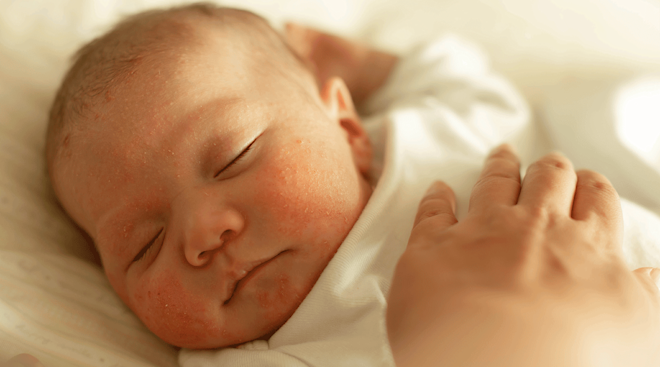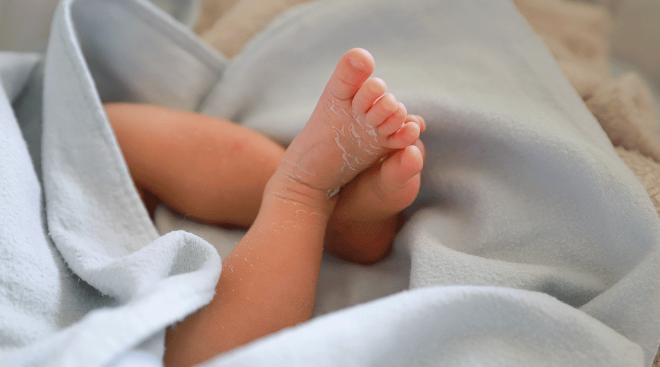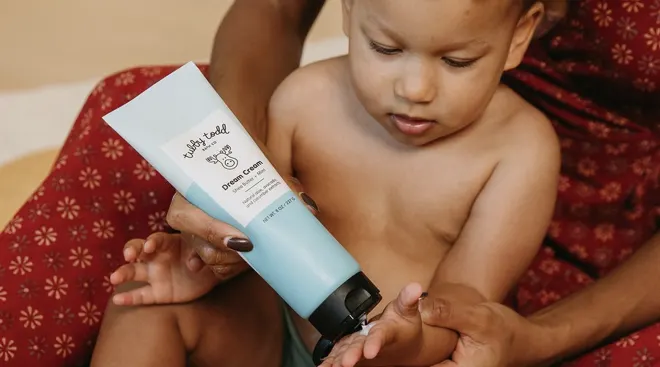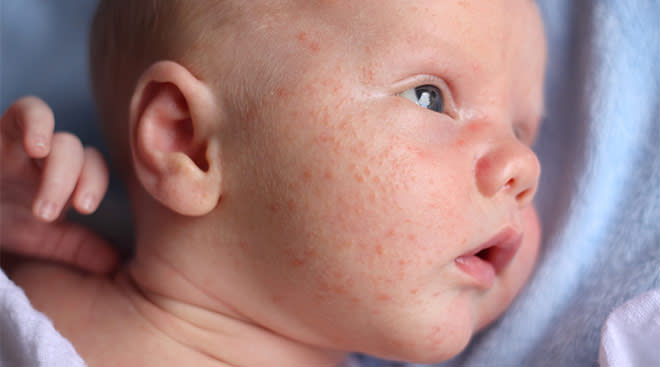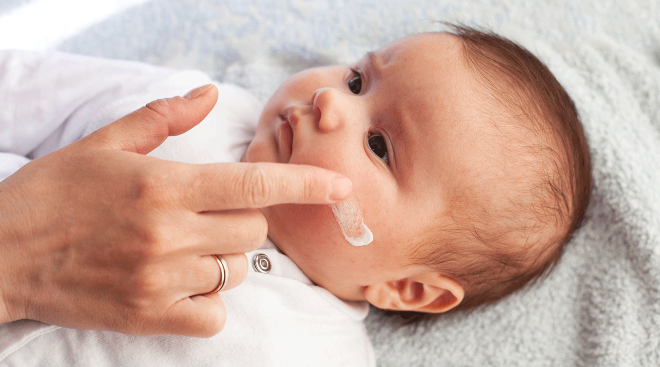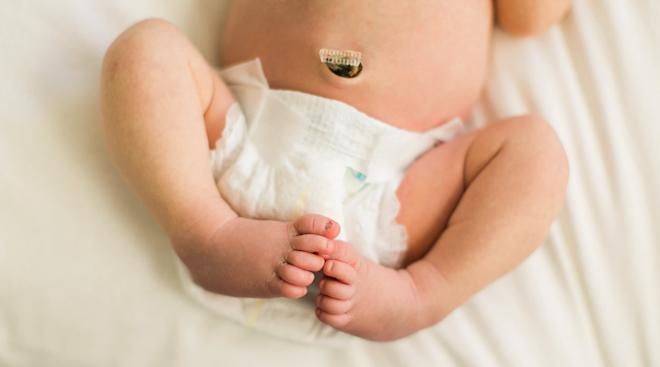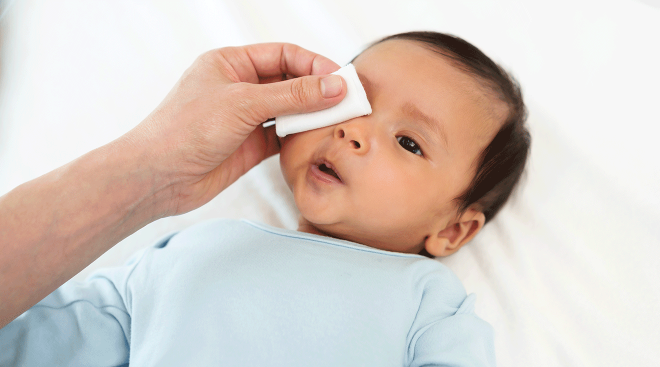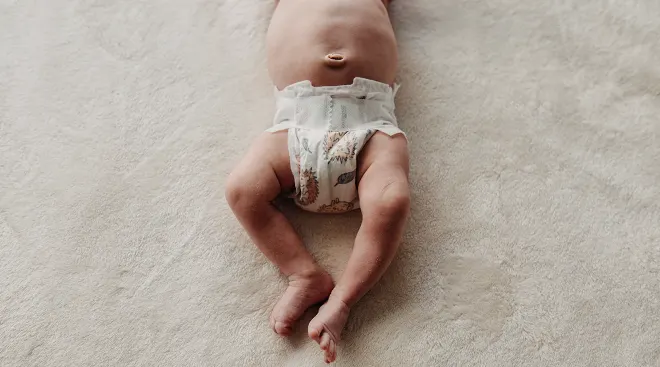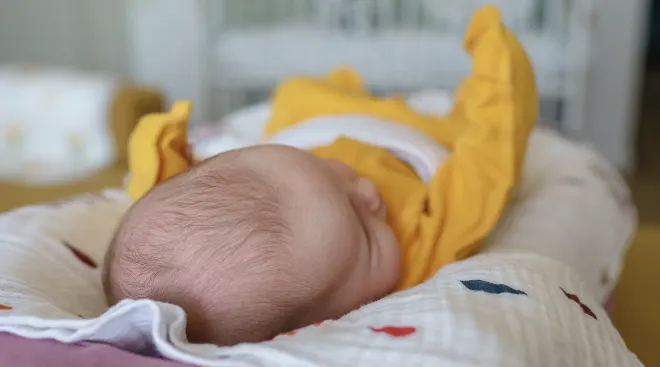Mouth Problems in Babies
What do mouth problems in babies look like?
There are a whole slew of issues that could plague that perfect little mouth — this includes lesions, bumps, sores, inflammation and cysts. Some of these are painful (especially when eating), and others are largely unnoticeable. And yes, even at a very young age, your baby or toddler can be at risk for tooth decay.
What could be causing my baby’s mouth problems?
Up to 90 percent of babies are born with gingival cysts or Epstein pearls, which look like white or yellowish round nodes (or emerging teeth) along the gumline and roof of the mouth. Luckily, these are not considered harmful or painful for your newborn. Another common mouth issue for babies is thrush, aka candida, which is an overgrowth of yeast in the mouth that causes the appearance of white patches.
Your baby or toddler’s mouth is an opening to the outside world and, thus, ripe for attack from a number of viruses. The ominous-sounding hand, foot and mouth disease, also known as Coxsackie virus, for example, can cause small blister-like bumps on the tongue, sides of cheeks or near the throat (as well as on the hands and feet).
For toddlers, one of the most common complaints is canker sores, roundish white or yellow sores that are surrounded by inflamed red skin and often caused by a trauma (like when those new teeth bite into her cheek) or a virus. (Note: Canker sores are not the same thing as cold sores, which are caused by the herpes simplex virus.) And if you’ve gotten into the bad habit of letting your baby or toddler fall asleep with a bottle in her mouth, she may be at risk for developing nursing caries, or tooth decay.
When should I take my baby to the doctor with mouth problems?
The American Academy of Pediatric Dentistry recommends seeing a pediatric dentist when your child’s first tooth appears, or no later than her first birthday. If you’ve put it off past then and have concerns about something that looks unusual, it’s worth a call to schedule her first checkup. That said, many of the most common mouth problems in newborns go away on their own. And if a sore or outbreak lasts more than a couple of weeks, or if she develops a fever or other symptoms like a rash or swollen lymph nodes, call your doctor to get a more definitive diagnosis.
What should I do to treat my baby’s mouth problems?
Depending on the concern, many mouth problems can be treated at home.
If your baby has developed thrush, be sure to sterilize bottle nipples and pacifiers. If you’re breastfeeding, you may be passing it back and forth to each other (you’ve probably got it if your nipples are sore, itchy, puffy or burning, even when you’re not feeding your baby), so ask your doctor about getting a prescription antifungal cream to apply to your nipples.
Canker sores and cold sores usually go away on their own, normally in about a week to 10 days. See if your child will drink through a straw rather than a cup to reduce irritation. A pain reliever like acetaminophen or ibuprofen can also help.
Please note: The Bump and the materials and information it contains are not intended to, and do not constitute, medical or other health advice or diagnosis and should not be used as such. You should always consult with a qualified physician or health professional about your specific circumstances.
Navigate forward to interact with the calendar and select a date. Press the question mark key to get the keyboard shortcuts for changing dates.





































